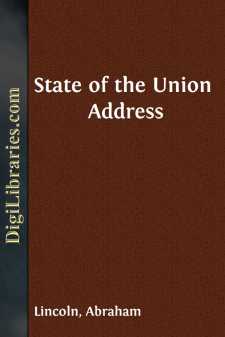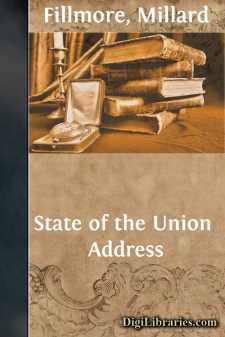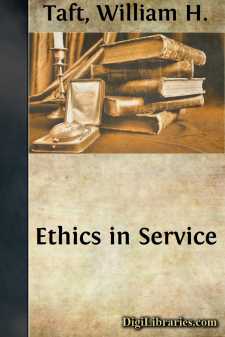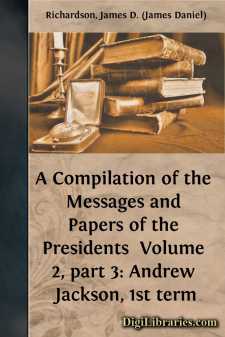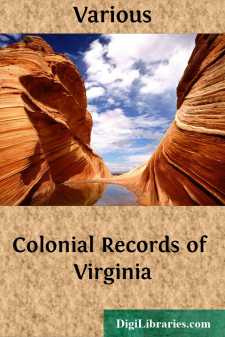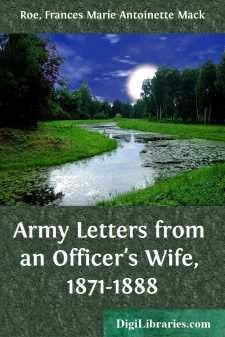History
- Africa 30
- Americas (North Central South West Indies) 50
- Ancient 68
- Asia 58
- Australia & New Zealand 8
- Canada 41
- Caribbean & West Indies 1
- Civilization 20
- Eastern Europe 12
- Europe 310
- Expeditions & Discoveries 60
- General 77
- Historical Geography 1
- Jewish 9
- Latin America 3
- Medieval 8
- Middle East 13
- Military 248
- Revolutionary 8
- Study & Teaching 5
- United States
- Western Europe 56
- World 13
United States Books
Sort by:
by:
Abraham Lincoln
Fellow-Citizens of the Senate and House of Representatives: In the midst of unprecedented political troubles we have cause of great gratitude to God for unusual good health and most abundant harvests. You will not be surprised to learn that in the peculiar exigencies of the times our intercourse with foreign nations has been attended with profound solicitude, chiefly turning upon our own domestic...
more...
by:
Jacob Stroyer
CHAPTER I. My father was born in Sierra Leone, Africa. Of his parents and his brothers and sisters I know nothing. I only remember that it was said that his father's name was Moncoso, and his mother's Mongomo, which names are known only among the native Africans. He was brought from Africa when but a boy, and sold to old Colonel Dick Singleton, who owned a great many plantations in South...
more...
by:
Millard Fillmore
Fellow-Citizens of the Senate and of the House of Representatives: Being suddenly called in the midst of the last session of Congress by a painful dispensation of Divine Providence to the responsible station which I now hold, I contented myself with such communications to the Legislature as the exigency of the moment seemed to require. The country was shrouded in mourning for the loss of its venerable...
more...
INTRODUCTION TO THE REVISED VOLUME II. The second volume of the American Eloquence is devoted exclusively to the Slavery controversy. The new material of the revised edition includes Rufus King and William Pinkney on the Missouri Question; John Quincy Adams on the War Power of the Constitution over Slavery; Sumner on the Repeal of the Fugitive Slave Law. The addition of the new material makes necessary...
more...
by:
William H. Taft
CHAPTER I HISTORY OF THE PROFESSION OF LAW It is not too much to say that the profession of the law is more or less on trial. It is certain that there is a crisis in the life of our courts, and that a great political issue is being forced upon the people, for they must decide whether the courts are to continue to exercise the power they now have, and what character of service they shall be required to...
more...
ANDREW JACKSON Andrew Jackson was born in the Waxhaw Settlement, North or South Carolina, on the 15th of March, 1767. He was a son of Andrew Jackson, an Irishman, who emigrated to America in 1765 and died in 1767. The name of his mother was Elizabeth Hutchinson. There is little definite information about the schools that he attended. According to Parton, "He learned to read, to write, and cast...
more...
DRUG SUPPLIES IN THE AMERICAN REVOLUTION by George B. Griffenhagen At the start of the Revolution, the Colonies were cut off from the source of their usual drug supply, England. A few drugs trickled through from the West Indies, but by 1776 there was an acute shortage. Lack of coordination and transportation resulted in a scarcity of drugs for the army hospitals even while druggists in other areas...
more...
by:
Various
INTRODUCTION. The documents herewith presented are printed from copies obtained from the Public Record Office of Great Britain. When the question of the boundary line between Maryland and Virginia was before the Legislature of the latter State, in 1860, Colonel Angus W. McDonald was sent to England to obtain the papers necessary to protect the interests of Virginia. He brought back "nine volumes of...
more...
ARMY LETTERS FROM AN OFFICER'S WIFE KIT CARSON, COLORADO TERRITORY, October, 1871. IT is late, so this can be only a note—to tell you that we arrived here safely, and will take the stage for Fort Lyon to-morrow morning at six o'clock. I am thankful enough that our stay is short at this terrible place, where one feels there is danger of being murdered any minute. Not one woman have I seen...
more...
by:
Emma Look Scott
THE FLAG GOES BY HATS off!Along the street there comesA blare of bugles, a ruffle of drums,A flash of color beneath the sky;Hats off!The flag is passing by! Blue and crimson and white it shines,Over the steel-tipped ordered lines,Hats off!The colors before us fly!But more than the flag is passing by.Sea-fights and land-fights, grim and great,Fought to make and to save the State.Weary marches and...
more...


